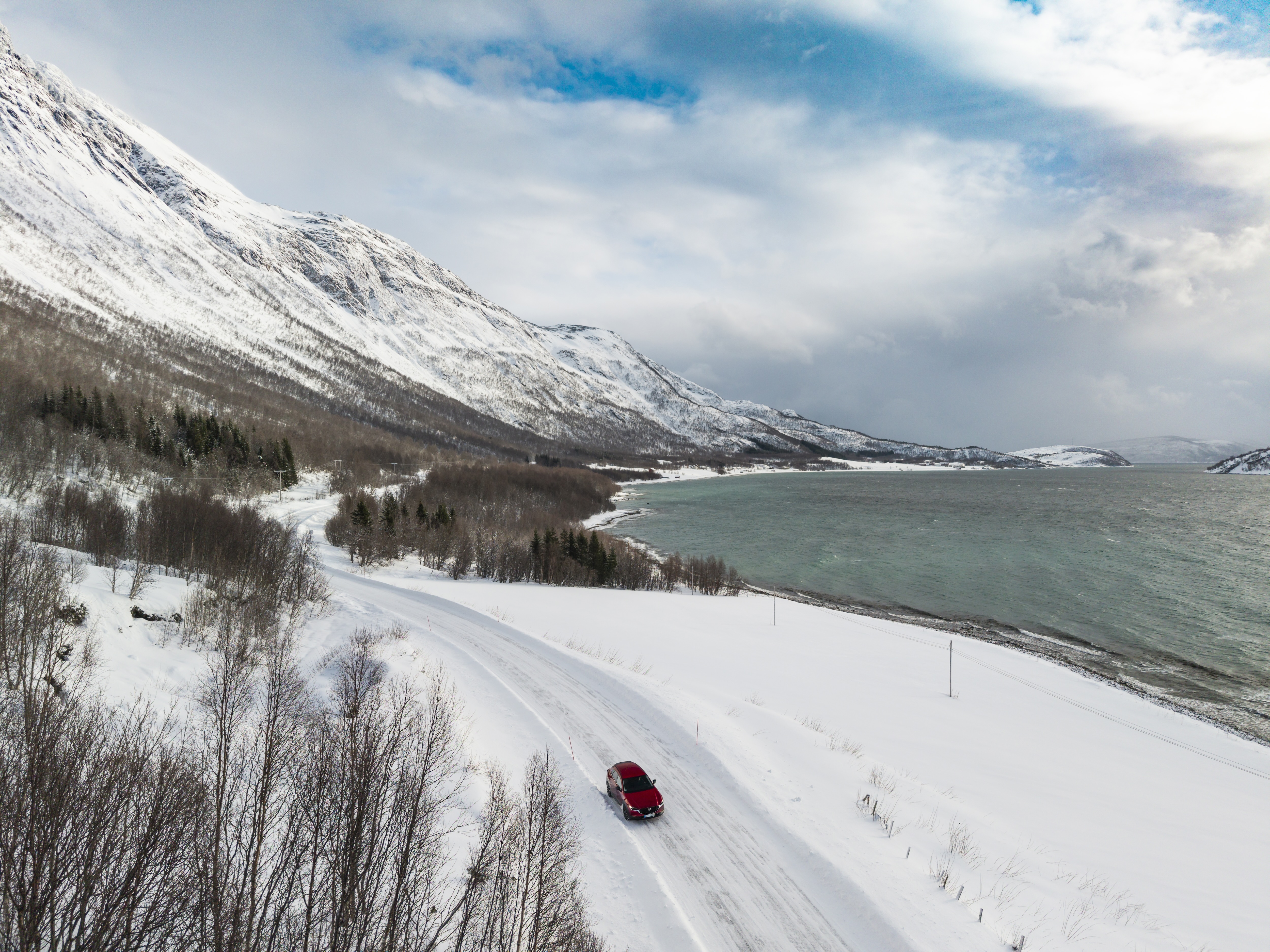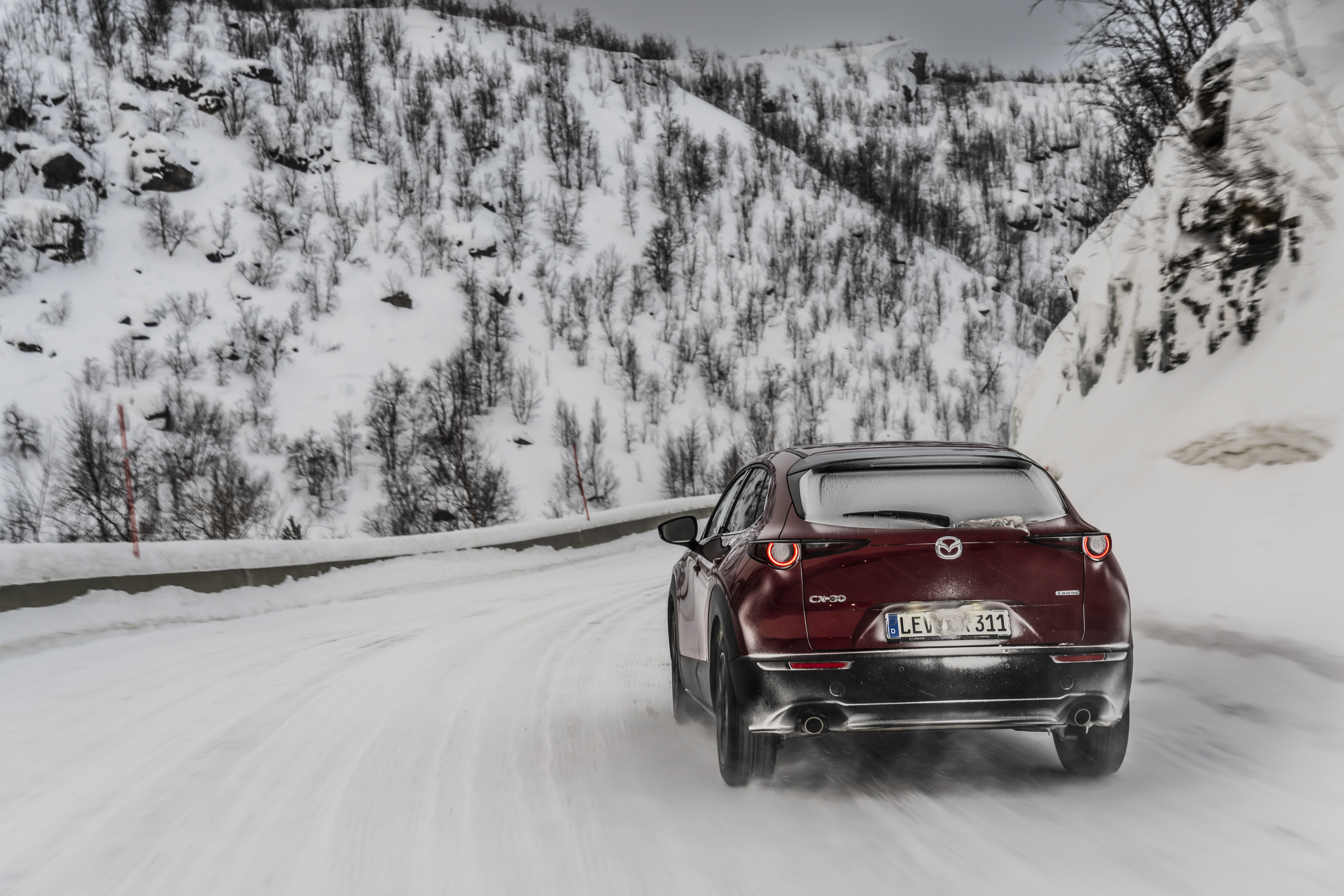12 Mazdas complete epic 1,300-mile Arctic road-trip on sustainable biofuel
The trip from the Baltic to the Arctic Circle highlighted the viability of sustainable fuel

A fleet of Mazda SUVs have travelled over 1,300 miles across some of the world’s hardest terrain to demonstrate the viability and suitability of sustainable fuel.
Some 12 petrol-powered Mazda CX-30s drove from Malmo in southern Sweden up through Finland and into Norway, finishing in the city of Tromso, deep in the Arctic Circle – a journey of 1,344 miles.
The three-day road-trip saw the cars being powered exclusively by sustainable fuel. The 100 per cent second-generation biofuel, made by SUSTAIN, is manufactured from agricultural waste.

The biofuel utilises the carbon that already exists in the atmosphere captured by plants as they grow, and then re-released in the internal combustion process.
Sustainable fuel differs from fossil fuels as the latter releases additional CO2 that is currently locked underground.
The cars, piloted by journalists and influencers, were completely standard with the only modification being the fitment of studded tyres to deal with sub-zero temperatures and often blizzard conditions.

Across the 1,300-mile-plus road-trip, the updated-for-2025 CX-30s, powered by Mazda’s latest 2.5-litre e-Skyactiv G mild-hybrid petrol engine, averaged over 40mpg.
The Japanese carmaker estimates that over 300kg of CO2 per car was saved.
Commenting on the drive, Mazda Motors UK Managing Director, Jeremy Thomson, said: “At Mazda, we will continue to develop the internal combustion engine to meet consumer demand in parallel with our battery electric development, as part of our multi-solution approach.
“In Japan we are researching and developing engines to run on biofuel as well as algae fuels and synthetic fuels, and in Europe we are a member of the e-fuel alliance.”
He added: “Our drive to the very north of Europe demonstrates the capability of the Mazda CX-30 in extreme conditions and the benefits of the internal combustion engine and advanced biofuels. In total we will have saved approximately 317kg of CO2 per car on a 1300-mile journey by using SUSTAIN advanced biofuel.”
David Richardson, Director at SUSTAIN, said: “Working with Mazda on this drive from the Baltic to the Arctic on 100 per cent sustainable biofuel is something we’re extremely proud of.
“Electric vehicles are increasing in numbers, but there are still many millions of combustion engine cars on our roads. Activities like this help show how easily we can reduce the emissions from those vehicles, promoting this option to the many people who still don’t know what sustainable fuels are or how they work.
“If we want to make the most of this technology, we need to raise awareness, address the misunderstandings and secure support from those in power to enable sustainable fuel production to be scaled up, which could happen relatively quickly.
“After all, there is no silver bullet solution to tackle the environmental impact of the automotive sector – it’s time we start using all the available technologies to give us the best chance to make a real difference.”





